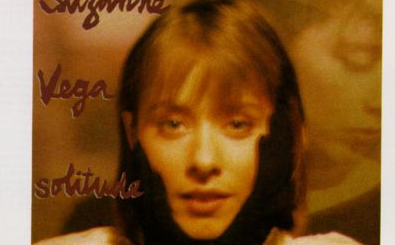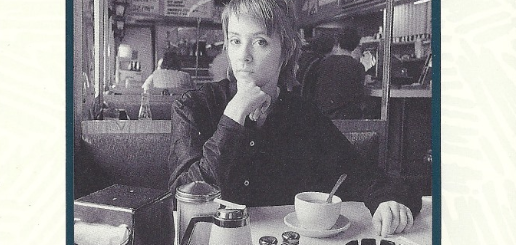Luka by Suzanne Vega Lyrics Meaning – Unveiling the Story Behind the Haunting Melody
Lyrics
I live on the second floor
I live upstairs from you
Yes, I think you’ve seen me before
If you hear something late at night
Some kind of trouble, some kind of fight
Just don’t ask me what it was
Just don’t ask me what it was
Just don’t ask me what it was
I think it’s ’cause I’m clumsy
I try not to talk too loud
Maybe it’s because I’m crazy
I try not to act too proud
They only hit until you cry
After that you don’t ask why
You just don’t argue anymore
You just don’t argue anymore
You just don’t argue anymore
Yes, I think I’m okay
Walked into the door again
If you ask, that’s what I’ll say
And it’s not your business anyway
I guess I’d like to be alone
With nothing broken, nothing thrown
Just don’t ask me how I am
Just don’t ask me how I am
Just don’t ask me how I am
My name is Luka
I live on the second floor
I live upstairs from you
Yes, I think you’ve seen me before
If you hear something late at night
Some kind of trouble, some kind of fight
Just don’t ask me what it was
Just don’t ask me what it was
Just don’t ask me what it was
And they only hit until you cry
After that you don’t ask why
You just don’t argue anymore
You just don’t argue anymore
You just don’t argue anymore
Upon first hearing the lilting tune and gentle voice of Suzanne Vega on her hit song ‘Luka’, one may be deceived by the seemingly serene soundscape. The melody is akin to a light breeze; Vega’s voice is soothing, almost conversational. But beneath the surface, a harrowing narrative unfolds. ‘Luka’ is more than a song—it’s a poignant exploration of domestic violence, as told through the eyes of an innocent.
This track from her second album, ‘Solitude Standing,’ catapulted to the top of the charts in 1987, not just for its earworm quality but also for the stark contrast between its smooth sound and its somber subject matter. It’s a master class in storytelling through music, with Vega using her platform to shine a light on a social issue often swept under the rug. The song is a testament to the power of subtlety and the strength of quiet voices.
The Voice of Innocence – What’s in a Name?
The name ‘Luka’ itself is androgynous, allowing listeners to project their own images onto the protagonist. This was a deliberate choice by Vega, meant to universalize the experience of the victim. ‘Luka’ is every child, every victim who has found themselves ensnared in the tense environment of an abusive household. Vega’s gentle introduction through Luka’s self-presentation invites listeners into a narrative that’s deceptively welcoming, setting the stage for a deeper dive.
Vega has mentioned in interviews that the name came from a real-life encounter with a boy named Luka, but the events described in the song are not biographical. Instead, they are a composite of experiences and stories, compiled into a character that represents many. This approach helps the song resonate with a broader audience. As we meet Luka, we’re entangled in the web of his daily life, the superficial banality of which belies the darkness beneath.
The Echoes of Silence – Words Left Unspoken
Repeated pleas to ‘just don’t ask me’ permeate the song, demonstrating a chilling approach to the secrecy that often surrounds domestic violence. These refrains speak to Luka’s isolation and the internalization of his plight. He’s learned to hide in plain sight, keeping the noises behind closed doors a secret from wondering neighbors and perhaps from himself.
It’s the unsaid that holds power in ‘Luka.’ The silences after the chorus, the absence of gritty details, the way the music itself seems to step lightly around the subject—it all serves to enhance the gravity of what Vega leaves out of the lyrics. This approach demands a closer listening, turning the listener into an active participant as they piece together the story Vega subtly unravels.
The Subtle Clues – Reading Between the Lines
Through lines such as ‘They only hit until you cry’ and ‘You just don’t argue anymore,’ Vega weaves a tale of resigned acceptance. It’s not that the violence is less real because it’s expressed softly; in fact, its impact is all the more profound. Luka has learned to adapt in a world where expressing pain or opposition only prolongs his misery, a sentiment echoed by victims of abuse worldwide.
The subtlety with which Vega approaches the song’s subject matter allows the narrative to take on a haunting quality. ‘Walked into the door again’ is a double entendre, often used as a euphemism for having been hit. To the naive ear, these lines might sound like quirky characteristics of a clumsy child. However, a discerning listener recognizes the distressing reality they conceal.
An Anthem of Solitude – The Search for Peace
When Luka wishes to be ‘alone with nothing broken, nothing thrown,’ Vega articulates a poignant yearning for peace and normalcy. The song tragically captures the longing of many who suffer in silence for a life free from the turmoil that has become their norm. There is a somber acceptance in these words—a desire for the simple solace of an undisturbed existence that should be everyone’s right.
‘Luka’ speaks not just to the endurance of the abused but also to their resilience. Despite the pain, there is an undercurrent of hope in the lyrics. The simple fact that Luka can voice his situation, even in veiled terms, signals an unspoken strength. It is this subtle affirmation of dignity, prevailing despite the odds, that makes the song an anthem for many in similar circumstances.
The Legacy of Luka – Why This Song Still Matters
Decades have passed since ‘Luka’ graced the airwaves, yet its significance has not diminished. The issue of domestic violence remains a pervasive one, and sadly, Luka’s story is still as relevant today as it was when Vega penned the song. Its timeless nature underscores not only Vega’s skill as a songwriter but also the societal need for such music—songs that challenge, comfort, and, most importantly, open dialogues on difficult topics.
Suzanne Vega’s ‘Luka’ is a powerful example of how music can transcend entertainment and become a vehicle for change. For those who have endured the silence of suffering, the song offers a voice, and for those fortunate enough to have never experienced such pain, it grants empathy. In the final analysis, ‘Luka’ is more than just a melodic hit from the ’80s; it is a narrative whose echoes continue to resonate, urging listeners to listen more carefully to the stories unfolding quietly on the floors below us.








